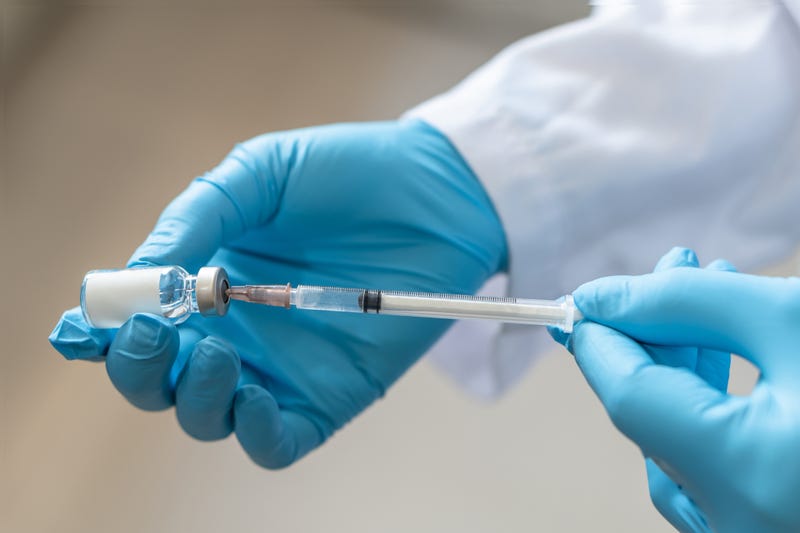
Moderna and Merck announced Tuesday that a trial of personalized mRNA cancer vaccine combined with another therapy “demonstrated a statistically significant and clinically meaningful improvement,” for melanoma patients.
According to a press release, adjuvant treatment with mRNA-4157/V940 along with Merck’s KEYTRUDA therapy reduced the risk of recurrence or death by 44% for stage III/IV melanoma following complete resection.
Melanoma is the most serious type of skin cancer, per the Mayo Clinic. It develops in melanocytes – cells that produce melanin, which gives skin pigment – as well as eyes and, in rare cases, internally.
“The exact cause of all melanomas isn’t clear, but exposure to ultraviolet (UV) radiation from sunlight or tanning lamps and beds increases your risk of developing melanoma,” the Mayo Clinic explained. “Limiting your exposure to UV radiation can help reduce your risk of melanoma.”
Risks for developing melanoma are increasing for people under 40, especially women, said the clinic.
Moderna said an estimated 100,000 new cases of melanoma were diagnosed this year in the U.S. and around 8,000 people died from the disease.
According to the company, five-year survival rates are estimated to be 60.3% for stage III and 16.2% for stage IV.
“Today’s results are highly encouraging for the field of cancer treatment, said Moderna CEO Stéphane Bancel, who added that, “mRNA has been transformative for COVID-19, and now, for the first time ever, we have demonstrated the potential for mRNA to have an impact on outcomes in a randomized clinical trial in melanoma.”
Jeffrey S. Weber, principal investigator of the randomized Phase 2b trial and deputy director of the Perlmutter Cancer Center at NYU Langone, said the results are exciting.
“These data provide the first evidence that we can improve on the rates of recurrence-free survival achieved by PD-1 blockade in resected high-risk melanoma,” he said.
KEYTRUDA, the Merck therapy used along with the vaccine in the trial, “binds to the protein PD-1 to help immune cells kill cancer cells better and is used to treat many different types of cancer,” according to the National Cancer Institute.
Going forward, this research could also contribute to the development of other “personalized cancer vaccines,” that are designed to prime a patient’s immune system to generate a tailored antitumor response “specific to their tumor mutation signature,” Moderna explained.
In the case of mRNA-4157/V940 an immune response is spurred by generating specific T cell responses based on the unique mutational signature of each patient’s tumor. KEYTRUDA then works by increasing the ability of the body’s immune system to help detect and fight tumor cells.
“Serious treatment-related adverse events occurred in 14.4% of patients who received the combination arm of mRNA-4157/V940 and KEYTRUDA versus 10% with KEYTRUDA alone,” said the Tuesday press release.
Bancel said that Moderna plans to begin additional studies in melanoma and other forms of cancer. He also said that the full data set and results for the recent trial would be presented at an upcoming oncology medical conference and with health authorities.
“These positive findings represent an important milestone in our collaboration with Moderna,” said Dr. Dean Y. Li, president of Merck Research Laboratories. “Over the last six years, our teams have worked closely together combining our respective expertise in mRNA and immuno-oncology with a focus on improving outcomes for patients with cancer. We look forward to advancing this program into the next phase of development.”
Moderna and Merck are expected to discuss the trial results with regulatory authorities and initiate a Phase 3 study of melanoma patients next year.


